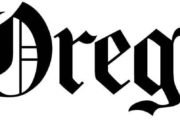What sets Pennsylvania apart from its Northeastern and Mid-Atlantic neighbors? Freedom of speech in the political process, for one.
Imagine you lived in a state where it was illegal to express too much support for a candidate. Such a law would be a blatant violation of the First Amendment. The ability to support causes and candidates of one’s choice is key to participation in a democratic society.
Yet, many states place limits on one of the most impactful ways to do so: donating money to campaigns and political groups. For those without the time to work or volunteer in politics, this outlet is especially important. As a new index from the Institute for Free Speech shows, state laws that limit contributions to such groups effectively restrict Americans’ First Amendment rights.
The Institute’s Free Speech Index scores and ranks all 50 states on their laws governing political giving, grading them from A-plus to F. Fortunately, Pennsylvania ranked as one of the top states in the country, earning an A grade. This places it alongside 10 other states that earned an A or higher. One crucial trait these states have in common is that they don’t limit the freedom of individuals to give to candidates, parties, and political committees, as well as the ability of parties and political committees to give to candidates.
Pennsylvania’s high score is particularly notable given the poor performances of its neighbors. Bordering West Virginia and Maryland both receive an F, while Ohio and Delaware each earn a D. New York fares a little better, earning a C grade, but it still restricts most forms of political giving. Taking stock of the entire East Coast, only Virginia does as well as the Keystone State at protecting the freedom to support candidates and causes.
Why is it so important that states like Pennsylvania allow freedom in political giving to and between these groups? Because the main effect of government-imposed restrictions on political giving is to limit the amount of speech individuals, organizations and political actors can express. Giving money is not just a show of support. It also enables candidates and groups to spread their message further.
That means stringent campaign finance laws tend to favor incumbents and hinder challengers. Incumbents have a bigger public platform than most thanks to name recognition and media exposure. Challengers, unless they are celebrities or independently wealthy, must spend money to make their name known and spread their message. Capping the amount of money that a candidate’s supporters can donate makes it harder for political outsiders to break into a system dominated by entrenched incumbents.
Perhaps that is why recent calls to impose contribution limits in Pennsylvania have come from the governor’s residence. Gov. Tom Wolf has pushed for contribution limits as part of his plan to “reform” Pennsylvania politics. If he gets his way, democracy will become less vibrant in the state and voters will have less speech about candidates to inform their vote.
Supporters of strict limits on the freedom to support candidates and causes argue these restrictions are a necessary check on the power of big money in politics. But the rich and powerful have always been able to find a platform for their views.
Instead, burdensome restrictions inflict much more pain on those who can’t afford to hire a team of lawyers to comply with complex laws. Lifting contribution limits simplifies this situation without increasing the risk of corruption.
Lawmakers in Pennsylvania deserve praise for preserving their constituents’ First Amendment freedoms. Many politicians find it easier to pass laws that make it harder for voters or rival candidates to criticize them. They do so while claiming they are protecting voters from the rich, when really, they are protecting themselves.
Pennsylvania is one of 11 states that has done an exemplary job of avoiding this trap. Hopefully, the Institute for Free Speech’s Index will shed light on how such states can continue producing pro-First Amendment policy — and will push others to do the same.
This post originally ran in the Morning Call on May 29th 2018.














